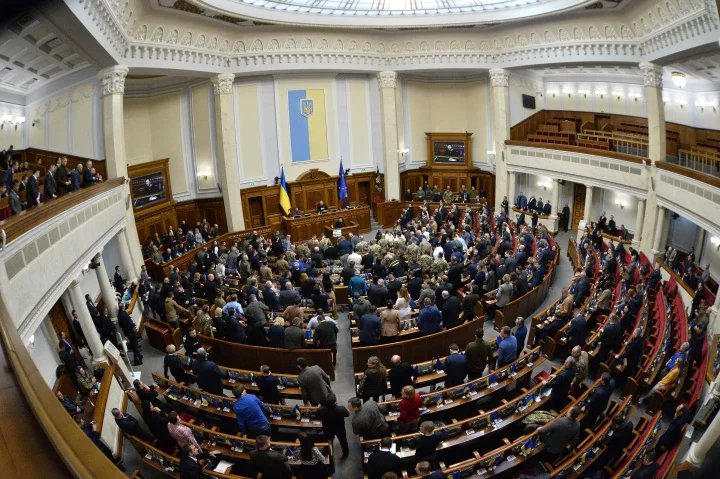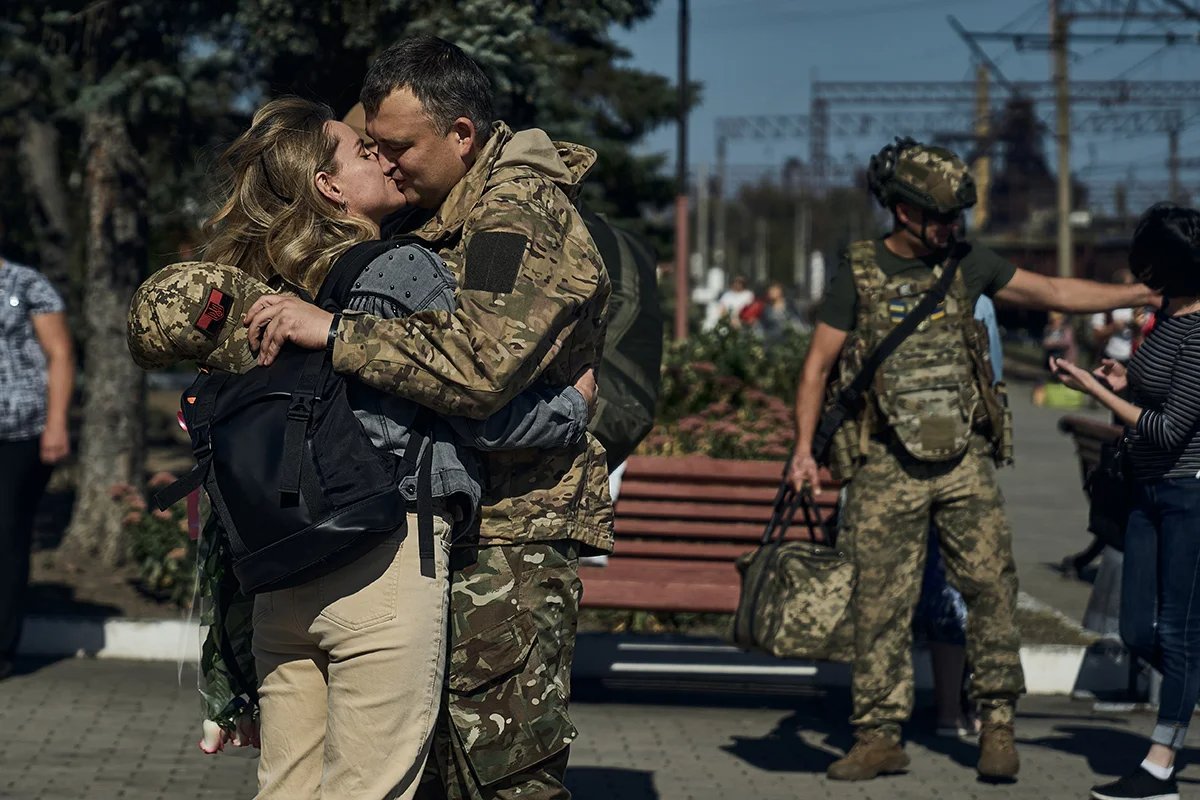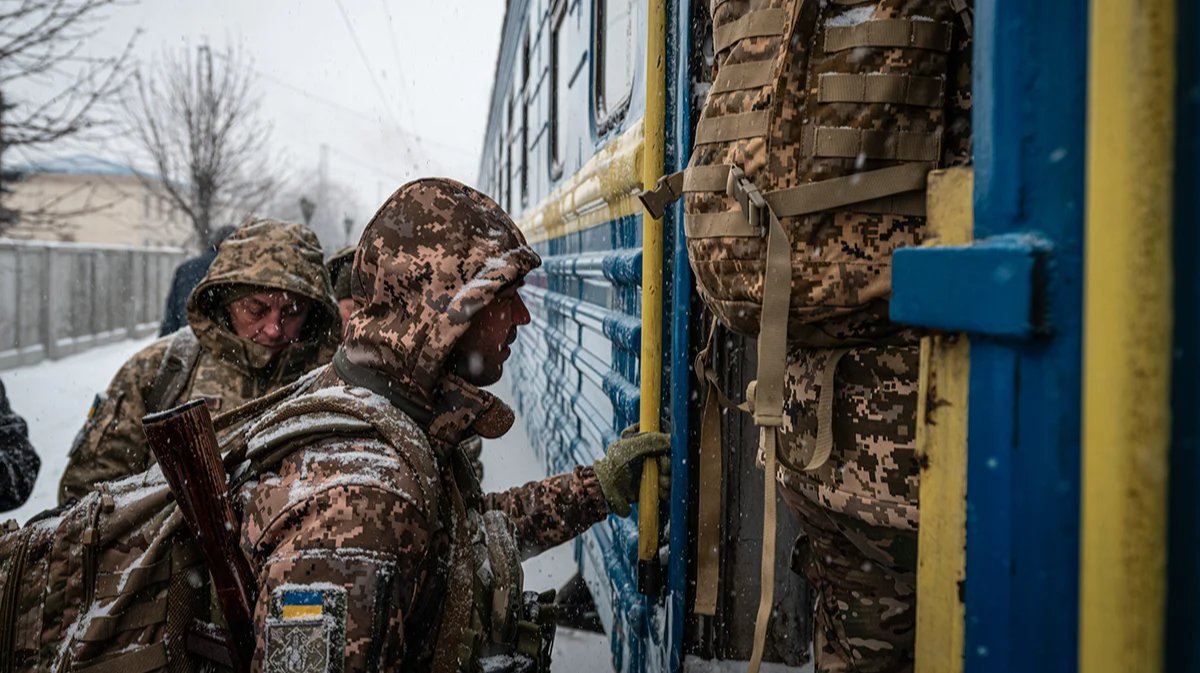Legislating on mobilisation is never a straightforward process. In Ukraine, five different versions of a new mobilisation bill were presented to the Rada, the Ukrainian parliament: one from the government and four others written by deputies. The differences between the proposals were slight, but when it comes to a thorny issue like this, the devil is in the detail.
In December, deputies on the Rada’s Defence Committee reviewed the various proposals, and the debate that followed gave rise to widespread anxiety in the media and Ukrainian society as a whole.
Several Rada subcommittees were involved in the conversation. The Anti-Corruption Committee warned of a heightened risk of mobilisation-related graft; the Social Policy Committee protested the proposed introduction of digital call-up papers; the Security, Defence and Intelligence Committee saw the venomous battles played out when Chief of the General Staff Serhiy Shaptala, Defence Minister Rustem Umerov and AFU Commander-in-Chief General Valeriy Zaluzhnyi held a closed doors meeting to discuss the proposals on 4 January.
The deputy head of the committee, Maryana Bezuhla, later wrote that she had supported a partial broadcast of the debate, but that her suggestion had been rejected due to Ukraine’s martial law. In the past, Bezuhla has sharply criticised Zaluzhnyi for his Soviet-style leadership, which she says endangers Ukrainian soldiers, and for the stifling bureaucracy she says has slowed the army’s progress. In return, Zaluzhnyi’s supporters accuse Bezuhla of working for Ukrainian President Volodymyr Zelensky, whose main concern, they said, was General Zaluzhnyi’s growing political profile.
Bezuhla didn’t disclose any details of the meeting, but her committee colleagues nonetheless voted to unseat her shortly afterwards. In response, she announced she was leaving the ruling Servant of the People party, but would remain a member of the Rada and a supporter of the president. She also pledged her readiness to cooperate with anyone willing to set aside their “personal ambition” and who had “practical ideas, is ready to fight for change, hates Russia and is not afraid”.
Ukrainian journalists have ascertained some of the specific points discussed at the 4 January meeting. For instance, their sources say that Zaluzhnyi opposed the drafting of convicts to fight in the Ukrainian army. While the proposed bill would have excluded those convicted of certain serious crimes from service, Zaluzhnyi reportedly still insisted that new recruits be found elsewhere. “Either ask the rest of the world or go and fight yourselves,” he reportedly said.

Photo: The Verkhovna Rada of Ukraine
The committee also came down hard on clauses that they argued would infringe upon the rights of those not wanting to serve in the military, saying that some of the proposed provisions were unconstitutional. Committee members also wanted to ensure that those with minor disabilities would be exempt from mobilisation, something the draft law didn’t provide for.
The term of military service, currently 36 months, was also a subject of lively debate, with some deputies arguing for that to be cut in half, or reduced to 24 months at the very least.
Those present said that Ukraine’s Education and Science Minister Oksen Lisovyi and the chief of the National Police Ivan Vyhivskyi joined the committee meeting to urge the deputies to reject the draft bill. While Lisovyi and Vyhivskyi both admitted to having supported the bill initially, both said that they had subsequently changed their minds after reading the legislation in full.

Ukrainian soldiers meeting loved ones at Kramatorsk Station, the closest to the front line, on 22 September. Photo: Libkos / Getty Images
On Thursday, the Rada’s Coordination Council sent the bill back to its authors, according to David Arakhamia, head of the Servant of the People faction in the Rada.
Zelensky’s government rapidly withdrew the bill, which they said they had “decided to revise,” and scheduled an emergency meeting. Analysts believe the legislative process will move forward very quickly from here, as Ukraine has no strategy without mobilisation.
Join us in rebuilding Novaya Gazeta Europe
The Russian government has banned independent media. We were forced to leave our country in order to keep doing our job, telling our readers about what is going on Russia, Ukraine and Europe.
We will continue fighting against warfare and dictatorship. We believe that freedom of speech is the most efficient antidote against tyranny. Support us financially to help us fight for peace and freedom.
By clicking the Support button, you agree to the processing of your personal data.
To cancel a regular donation, please write to [email protected]

